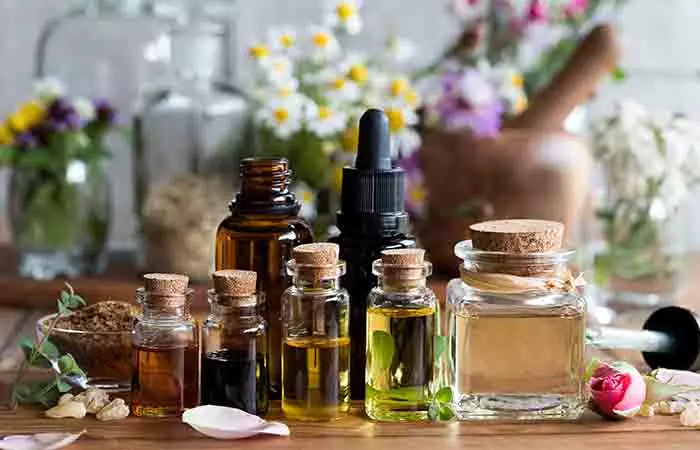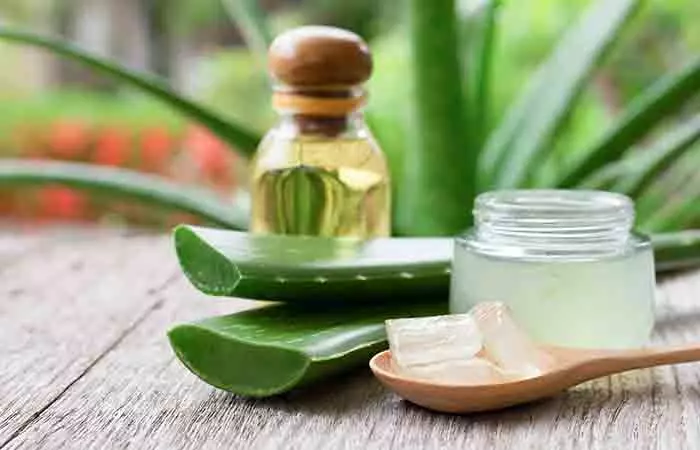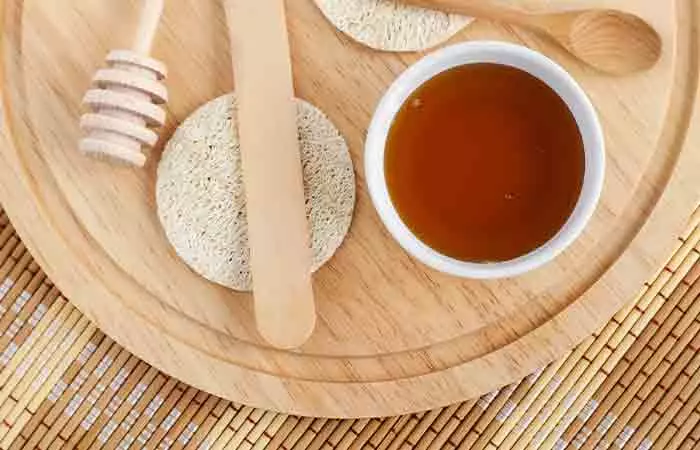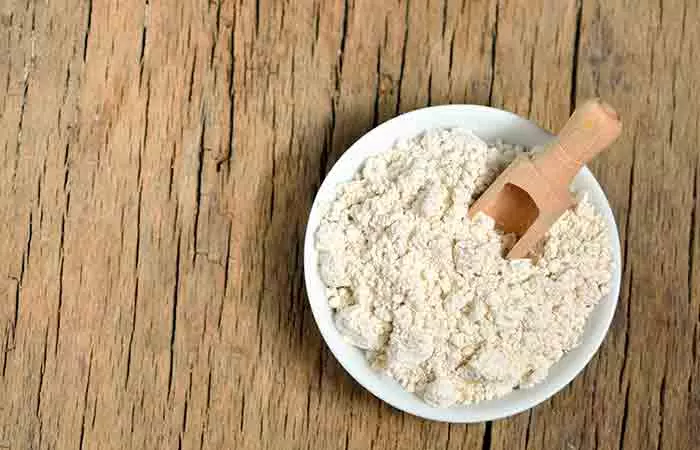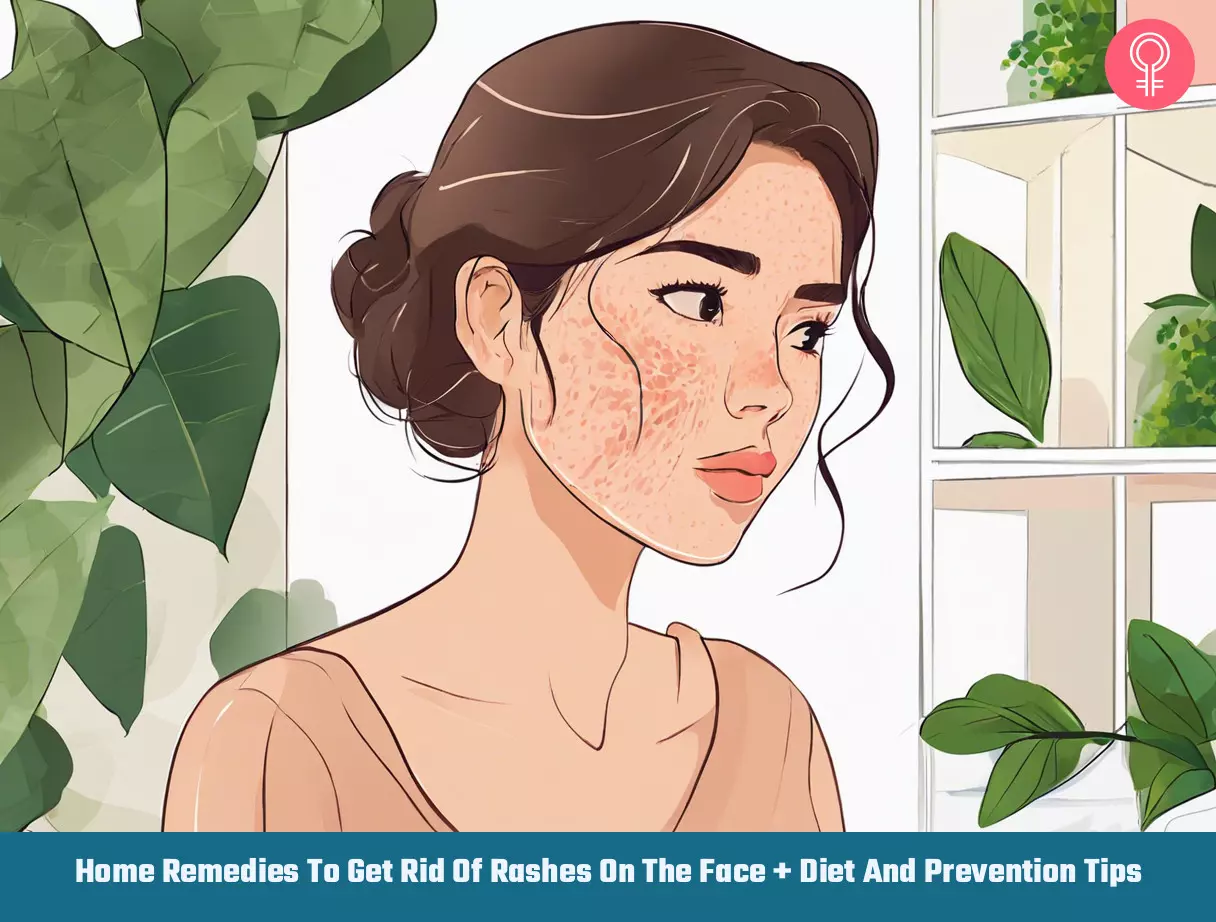What Causes Skin Rashes?
The causes of non-infectious rashes are:
Allergies Reactions to medicinal drugs Dry skin Hypersensitivity to plants like poison ivy Autoimmune conditions Food allergies
Board-certified dermatologist Dr. Anna Chacon, MD, FAAD, describes a commonly observed allergic skin rash. She says, “A big, red rash may result from allergic contact dermatitis on the face. Dry, crusty skin and little red pimples may also be present.” The causes of infectious rashes include:
Fungal infections caused by Trichophyton, Candida, etc. Viral infections like herpes simplex, herpes zoster, HIV, Epstein-Barr virus (EBV) Infections caused by bacteria like Staphylococcus, Streptococcus, Pseudomonas, etc. Parasites like lice and mites
A survey conducted estimated 35.5 million inpatient visits in 2018. Out of these 35.5 million patients, 666,235 patients were diagnosed with fungal infections. It was noted that 76.3% were Aspergillus, Pneumocystis, and Candida infections. Furthermore, 6.6 million outpatient visits due to fungal infections were seen in 2018. Rashes can be quite troublesome in the long run. Dr. Chacon adds, “It might be an allergic response, a drug reaction, or an internal reason if your rash develops blisters or if it becomes open sores. If a blistering rash appears on your skin and spreads to your lips, genitals, or the skin around your eyes, you should see a doctor.” You can follow the remedies discussed below to soothe them and accelerate healing. Note: The remedies discussed below may help ease the symptoms of a rash. However, if the rash persists for more than a week, consult your healthcare provider to test for any underlying causes.
Home Remedies For Skin Rashes
1. Essential Oils
a. Tea Tree Oil
Tea tree oil possesses anti-inflammatory properties that help reduce skin inflammation and redness associated with rashes, eczema treatment, rosacea treatment, and dermatitis treatment. It is also antiseptic and antimicrobial, which helps prevent further infections (1).
12 drops of tea tree oil 30 mL of any carrier oil (coconut or jojoba oil)
Do this at least once daily, preferably before going to bed.
b. Lavender Oil
Lavender oil has anti-inflammatory and analgesici The property or drug that relieves pain without numbing the nerves or altering sensory perception during medical procedures. properties (2). It can help soothe and reduce redness on the face along with swelling, pain, and inflammation associated with skin rashes.
12 drops of lavender oil 30 mL of coconut or olive oil
Do this at least once daily.
c. Eucalyptus Oil
One of the major constituents of eucalyptus oil is eucalyptol. This compound has cooling, soothing, anti-inflammatory, and analgesic properties that can accelerate healing and provide skin allergy relief (3).
12 drops of eucalyptus oil 30 mL of any carrier (coconut or jojoba oil)
Do this once daily.
2. Apple Cider Vinegar
Apple cider vinegar has anti-inflammatory and antimicrobial properties (4). This may help treat skin rashes and ease the symptoms. However, more scientific studies are needed to prove this effect.
1 tablespoon of apple cider vinegar ½ cup of water Cotton pads
Do this 2 times daily. Zoe, a beauty and lifestyle blogger, tried using apple cider vinegar as a toner to treat facial rashes. She writes, “I recommend that if you are looking for a way to clear it up then this is a good start (i).”
3. Coconut Oil
Coconut oil is proven to exhibit strong anti-inflammatory, analgesic, and antimicrobial activities (5), (6). These activities can soothe the existing rashes and prevent their recurrence. It is a great acne rash removal remedy. Coconut oil (as required) Do this once daily.
4. Baking Soda
Baking soda neutralizes the pH of your skin. It also has an antipruritic effect on rashes (7). However, there is insufficient scientific evidence to prove the effect of baking soda in treating skin rashes.
1 teaspoon of baking soda Water (as required)
Caution: Do a patch test before using baking soda on your skin. Do this once daily.
5. Aloe Vera
You can use aloe vera for rashes on the skin, as it is an effective remedy due to its healing and anti-inflammatory properties. It provides a soothing sensation that calms the skin (8). This gel is also antimicrobial, which helps prevent the recurrence of the infection. You Will Need Aloe gel (as required) Do this 1 to 2 times daily.
6. Epsom Salt
Epsom salt (magnesium sulfate) has anti-inflammatory properties (9). Hence, it can be used for treating the inflammation, swelling, and itchiness associated with skin rashes.
1 cup of Epsom salt Water
Do this once daily or every alternate day.
7. Petroleum Jelly
Petroleum jelly forms a protective layer on your skin, enhancing your natural skin barrier, and prevents microbial infections while keeping your skin well moisturized. In one study, Vaseline, along with other antibiotics and antihistaminesi A class of drugs that blocks histamine, a substance the body releases during infection, to relieve allergy symptoms. , was shown to improve facial rash in one week of continued use (10). In such cases, the timing of facial rash diagnosis is also crucial. Petroleum jelly (as required) Do this multiple times daily, as per your requirement. Note: Petroleum jelly can also be used to treat diaper rashes in babies.
8. Castor Oil
The presence of ricinoleic acid in castor oil gives it anti-inflammatory properties that can help reduce inflammation, swelling, and itchiness (11). It is commonly used to treat many skin disorders (12). 2 teaspoons of castor oil Do this once daily. Caution: Do a patch test before following this remedy as some individuals could be sensitive to castor oil.
9. Breast Milk
Breast milk moisturizes your baby’s skin and protects it from further infections. It can also help treat other skin problems (13). A few drops of breast milk Do this 1 to 2 times daily.
10. Hydrogen Peroxide
Hydrogen peroxide has antibacterial properties (14). Hence, it may help in treating infectious rashes and prevent further infections. However, there is insufficient evidence to prove this effect.
3% hydrogen peroxide Cotton balls
Do this 1 to 2 times daily. Caution: Do not try this remedy if you have sensitive skin.
11. Manuka Honey
Manuka honey is quite popular for its powerful anti-inflammatory and healing properties, and it helps reduce swelling and inflammation (15). You Will Need
1 tablespoon of manuka honey 2 teaspoons of olive oil
Do this at least once daily.
12. Green Tea
Green tea contains beneficial polyphenolsi A naturally occurring plant micronutrient that can benefit your skin because of its antioxidant and anti-inflammatory properties. that protect your skin from free radical damage due to their antioxidant and anti-inflammatory properties (16),(17). This helps soothe the rash and prevent its recurrence.
1 teaspoon of green tea 1 cup of hot water Cotton pads
Do this once daily.
13. Neem Oil
Neem oil exhibits anti-inflammatory, antiseptic, and antihistamine activities, which treat skin rashes and their symptoms like inflammation and redness (18), (19). You Will Need A few drops of neem oil Do this once daily.
14. Lemon Juice
Lemon juice is rich in vitamin C, a powerful antioxidant. Lemons also have anti-inflammatory and bactericidal properties (20), (21). All of these help in combating skin rashes and preventing further infections.
½ lemon Cotton pads
Do this once daily or every alternate day. Caution: Do not use this remedy if you have dry or sensitive skin.
15. Oatmeal
Oatmeal has antioxidant and anti-inflammatory properties that can help in treating different skin conditions, like eczema, pruritusi The scientific term used to describe the itching feeling or sensation that makes you want to scratch the skin. , atopic dermatitis, acneiform eruptionsi A group of skin disorders characterized by red bumps and pus-filled bumps on the skin, resembling acne. , and viral infections (22), (23). This effective home remedy reduces skin itchiness, dryness, and roughness associated with rashes.
You Will Need
1 cup of oatmeal Water
How Often You Should Do This Do this 3 times a week.
16. Garlic
Garlic contains a compound called allicin that possesses excellent anti-inflammatory and antimicrobial properties (24),(25). Minced garlic cloves Do this once daily. Caution: Do a patch test before using this remedy, as garlic can burn your skin.
17. Ginger
Ginger contains gingerol, which is a potent analgesic, anti-inflammatory, and antimicrobial compound (26), (27). It can help ease the irritation and inflammation associated with skin rashes. You Will Need
1-2 inches of ginger 1 cup of hot water Cotton pads
Do this 1 to 2 times daily.
18. Grapefruit Seed Extract
The grapefruit seed extract is loaded with bioflavonoids that possess antimicrobial and anti-inflammatory properties (28). It also aids wound healing (29). Grapefruit seed extract (as required) Do this 1 to 2 times daily.
19. Jojoba Oil
Jojoba oil is rich in vitamin E and can be quickly absorbed by the skin. It helps in keeping the skin well moisturized and also combats rashes due to its antimicrobial and anti-inflammatory properties (30). You Will Need Jojoba oil (as required) Do this once daily.
20. Onion Juice
The presence of quercetin in onions makes them one of the best remedies for skin rashes. Quercetin has anti-inflammatory and antiseptic properties and can help in disinfecting the rash and healing it (31).
1 onion Cotton balls
Do this 1 to 2 times daily.
21. Carrot Juice
Carrot juice contains high levels of vitamin A, which boosts skin health. Deficiencies in vitamin A can trigger skin allergies (32). Thus, consumption of carrot juice daily can help treat skin problems, like rashes. You Will Need 1 glass of carrot juice Consume a glass of carrot juice. Do this daily.
22. Humidifiers
During winter months or in air-conditioned rooms, dry air may harm the skin barrier function and make it more prone to irritation and damage from allergens (33). It may also worsen existing dermatological conditions. Using a humidifier may help add moisture to the air and calm your skin. You can either buy a store-bought humidifier or prepare one at home using some simple objects. You Will Need
A big piece of sponge A plastic container with a lid Water
What You Have To Do How Often You Should Do This Do this daily.
Diet For Rashes
Best Foods To Reduce Rashes
Foods that can help in reducing rashes include:
Beans Chickpeas Carrots Sweet potatoes Mangoes Vitamin C-rich foods like citrus fruits, spinach, broccoli. Fatty fish
Foods To Avoid
Foods that need to be avoided are:
Eggs Milk Peanuts Tree nuts Wheat Soy Shellfish
These foods account for about 90% of all food allergies and are best avoided. While a proper diet may help alleviate rashes, it is important to know when to seek medical attention. If the condition worsens or doesn’t improve with dietary changes, you may need to get professional help. Scroll down to know more.
When To Seek Medical Attention
If your rashes frequently occur or remain even after using these home remedies and other OTC treatments, you should consult a physician for a proper diagnosis. It is important to get medical help right away if you have face rashes combined with additional symptoms such as breathing difficulties, swelling, extreme discomfort, or if the rash spreads quickly. These signs may lead to a severe allergic reaction or other underlying medical conditions that need to be treated right once. In addition, you should consult a doctor if the rash seems contagious (as indicated by pus or growing redness), or if it is accompanied by a fever or other concerning symptoms. Given below are some additional tips to prevent developing skin rashes.
Prevention Tips
Avoid using harsh or irritating soaps. Avoid contact with those who have infectious rashes. Exercise regularly. Keep your stress under control. Avoid wearing tight clothes. Instead, wear light and loose-fitting clothes. Maintain personal hygiene. Consider patch-testing new skin care products to check for adverse reactions.
Dr. Chacon advises, “Without a prescription, hydrocortisone cream (1% concentration) can treat many rashes. A prescription is required to purchase stronger cortisone creams. Apply moisturizers to eczema-affected skin. To treat eczema or psoriasis symptoms, use oatmeal bath products, which are sold in pharmacies.”
Types Of Skin Rashes
Any abnormal change in the color or texture of your skin often indicates a skin rash. Rashes are mainly classified into two types – noninfectious and infectious rashes. Non-infectious rashes include eczema, contact dermatitis, psoriasis, seborrheic dermatitisi A common chronic skin condition that affects the oily areas of the body, causing dandruff, scaly patches, and inflamed skin. , rosaceai A chronic inflammatory skin condition that causes red, swollen, and small pus-filled bumps on the skin and facial redness. , hives, xerosis (dry skin), and allergic dermatitis. Infectious rashes are ringworm, impetigo, scabiesi An itchy skin rash caused by tiny mites called Sarcoptes scabiei that can burrow into the skin. , herpes, chickenpox, and shingles.
Signs and Symptoms Of Skin Rashes
Itchy red skin Bumpy skin, with pus-filled bumps Blisters Scaly, dry skin
These symptoms could surface individually or in combination, depending on the cause of your rash. How long do skin rashes take to heal? Skin rashes can take anywhere between 2 to 4 weeks to disappear completely. However, treatment can speed up your recovery. Can stress cause a rash on my face? Yes, stress can lead to red and raised rashes called hives on different parts of the body, such as the neck, face, hands, and chest. Stress can also aggravate existing skin conditions such as eczema and psoriasis (34). How to get rid of a rash overnight? It is not possible to get rid of a rash overnight. However, if the rash is caused by a medical condition or allergic reaction, medication might help fix it quicker than home remedies. Is it safe to use makeup or skincare products when you have a facial rash? No, it is generally not recommended to use makeup or skincare products when you have a facial rash, as they may aggravate the condition. How does age affect the development and treatment of facial rashes? Certain types of rashes are more common in infants and young children while others affect middle-aged or older adults. The skin’s ability to repair itself and fight infection may also decrease with age, making it harder to treat certain rashes. That is why treatment should be adjusted based on age and overall health to ensure it is effective and safe. Can environmental factors like pollution or weather cause facial rashes? Yes, pollution and weather can irritate the skin and cause inflammation, which can result in a rash. Extreme heat, cold, or wind can also cause dryness or irritation, increasing the risk of developing rashes. Is it possible to get rid of facial rashes permanently? This depends on the underlying cause of the rash. Some people may have long periods of remission from particular types of rashes, while others may have periodic flare-ups.
Illustration: Home Remedies To Get Rid Of Rashes On The Face + Diet And Prevention Tips
Looking for valuable insights on effectively managing a face rash? Check out the following video to discover practical tips and techniques to minimize redness and irritation and take care of face rashes.
